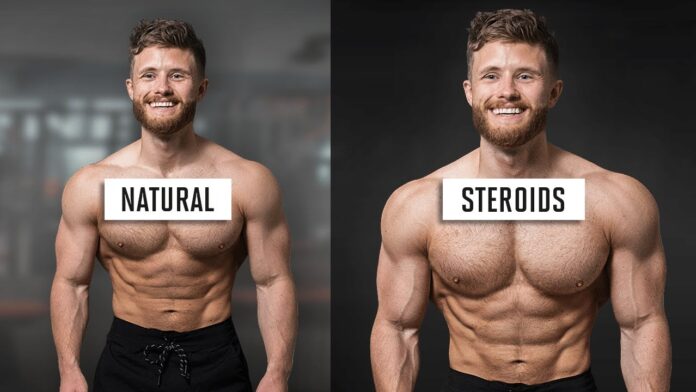👋 Let’s Talk About It — Openly and Honestly
If you’re new to bodybuilding, you’ve probably already heard terms like “natty,” “gear,” “TRT,” and “juiced.” And maybe you’re wondering — what’s the difference between natural and enhanced bodybuilding? Which one is better? Is one safer? Should I ever consider going enhanced?
Let’s clear the air. This post isn’t about judgment — it’s about clarity, real experience, and smart choices.
Just like we covered in What Is Bodybuilding?, this journey is deeply personal. You get to decide how far you want to go, and how you want to get there. My job is to help you make that choice with your eyes wide open.
🧬 What Does “Natural” Mean in Bodybuilding?
Natural bodybuilding means training, eating, and recovering without the use of performance-enhancing drugs (PEDs). That includes anabolic steroids, SARMs, growth hormone, and even TRT if it’s used outside medical necessity.
Naturals build their physique using:
- Progressive resistance training
- Protein-rich diets and whole foods
- Recovery, rest, and patience
- Smart supplementation (creatine, whey, vitamins)
Pros:
- Fewer health risks
- No dependency on external hormones
- More sustainable long-term
- Natural hormone balance remains intact
Cons:
- Progress is slower
- Muscle growth is limited by genetics and hormones
- Requires more patience and discipline
Still — and I mean this honestly — some of the most impressive physiques I’ve seen were 100% natural. Not because they were the biggest, but because they were built through raw grit and consistency.
💉 What Is “Enhanced” Bodybuilding?
Enhanced bodybuilding involves the use of compounds that increase muscle growth, recovery speed, strength, or fat loss beyond natural limits.
These can include:
- Anabolic steroids (like testosterone, trenbolone, nandrolone)
- SARMs (selective androgen receptor modulators)
- Peptides (like HGH, IGF-1, or fat-loss agents)
- TRT (Testosterone Replacement Therapy) — medically or performance-driven
Pros:
- Faster muscle growth and recovery
- Greater strength and vascularity
- Higher protein synthesis and endurance
- Ability to push past genetic plateaus
Cons:
- Health risks: liver strain, heart issues, hormone shutdown
- Requires bloodwork, post-cycle therapy (PCT), and medical knowledge
- Long-term dependency potential
- Can disrupt natural testosterone levels permanently
Important: If you’re even thinking about going enhanced, make sure you read our full section on Anabolic Steroids and SARMs. We break it all down in medically accurate, no-BS terms.
❗Which Path Is Right for You Natural vs Enhanced?
There’s no one-size-fits-all answer. But here’s what I’d recommend after 30 years in this world:
Start natural.
Build your base.
Learn how your body responds to training, food, and rest.
After 2–3 years of consistent work, you’ll know if you’ve hit your limit — and whether going enhanced is something you want to pursue with full responsibility.
Don’t chase shortcuts. Chasing fast gains can set you back in the long run.
🤝 My Honest Advice as a Veteran Lifter on Natural vs Enhanced
If I could talk to my 20-year-old self, I’d say:
“Go all in on natural training for at least 3 years. Track your progress. Learn your body. Then — and only then — think about enhancements, and only with real knowledge, medical support, and a reason beyond just impatience.”
Your physique, your health, and your future are worth doing this the right way.
🔗 Internal Links to Explore Next
- 👉 What Is Bodybuilding?
- 👉 Anabolic Steroids Guide (coming soon)
- 👉 SARMs Explained (coming soon)
- 👉 Hormones & Health Category


